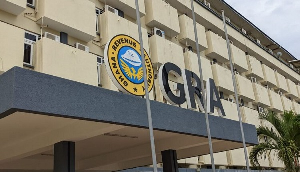Introducing an alternate health service financing scheme is a critical landmark in the effective provision of health service in Ghana. Various forms of health financing schemes have been experimented, notable among them are Government virtually paying for all the cost and the beneficiary of a service immediately paying for the cost ?the cash-and-carry system?. Both approaches have been/are being phased out. Our past experiences have not been effective in either promoting the use of our health facilities, the sustainability of providing efficient health care, and/or improve the health status of the masses. With all its good intentions it must be noted that the health insurance scheme being introduced will not provide all the answers to dealing with all costs associated to health service delivery.
Cost of Health Service delivery:
The Cost of health service delivery can simply be grouped into two: the capital cost and the recurrent cost. The capital cost is the hardware cost which includes the provision of health care facilities ? such building hospitals, maintaining the health care facilities and training of health service providers. These costs have always been borne by Government under all the previous health financing schemes, be it cash-and-carry, or what have you. The health insurance system being implemented falls short of taking care of these costs.
The other cost is the recurrent cost ? the cost associated to the consumables and other supplies such as medical supplies (disinfectants, surgical masks, syringes, etc), drug cost, laboratory inputs, fuel for ambulance, servicing of equipment, etc. This is the cost, or probably part of this, that users of health service are usually asked to pay. It must be mentioned here that the cost as passed on the ?ordinary Ghanaian? is usually not the full recurrent cost.
Health Insurance:
The health insurance scheme will definitely be a more sustainable and humane option of mitigating the cost of health care as borne by individuals, be it for the rich or for the poor. The health insurance scheme as designed or as explained to the public is to alleviate the burden of public in paying for this cost at the point of delivery by distributing this cost over time and space. In a layman?s language, we all contribute to paying for the cost of the one who is offered the service today so that we can also enjoy the service tomorrow.
National Health Insurance Levy:
The National Health Insurance Levy (NHIL), the ?Chameleon VAT?, was introduced on August 1, 2004 year to provide ?seed money? for the take off of the National Health Insurance Scheme. The Levy which is a disguised VAT is charged (2.5%) on some goods and services and thus consumers in Ghana are paying the levy. As at December last year we had exceeded the money the levy was to provide for the take of the insurance scheme. It will be suicidal to continuously support the health insurance scheme with direct tax payers? money ? the NHIL. A multi-billion cedi question is if the levy was just to provide seed money why has the government not redrawn it have exceeding what it was set up to raise?
It is in this light that the approach of Government, our representatives the Parliamentarians and indeed all Political Parties to the institution of the 2.5% National Health Insurance Levy could be described as short sighted and short of addressing the total needs of health delivery in Ghana.
Effective Health Service Delivery:
An effective health service delivery does not only depend on being able to pay for drugs or other consumables but also have the state-of-art facilities that effectively promote diagnosis, treatment and the necessary environment for recovery when one falls ill; and well qualified and motivated health personnel to utilize and manage those facilities. The ideal alternative is to have an environment that shields people from fall ill ? having the appropriate environment to reduce infections and other non-communicable diseases. Ghana needs massive capital investments in the health and social service sectors to ensure such an ideal health environment. Ghanaians deserve good health facilities, indeed all regional hospitals and of course district hospitals should be like those of Sunyani, Ho, or the Cape Coast hospitals. (For readers who have not been to any of these, the facilities in there can be compared to any standard hospital in the US or Western Europe). Another question that needs to be answered which will not be discussed here is how rational is it for Government to use our money (taxes) to train health professional only for them to either abandon us for ?greener pastures? or tell us ?they are not going to put the knowledge they acquired at our expense for our benefit because they want improved service conditions?.
Transform NHIL into Ghana Health Trust Fund:
The NHIL has opened the door for resources to be raised to provide such facilities. Drawing on the experience of the GETFund especially on the impact of the fund on the provision on education facilities in the country, the NHIL should be transformed into a HealthFund (Ghana Health Trust Fund). The National Health Insurance Scheme should be self sustaining and should not rely on direct taxes for its sustainability. Thus the Levy should be paid into a Health Fund, which could be instituted and managed similar to the GETFund with a primary responsibility of covering the capital cost as mention earlier at all levels of health delivery in Ghana. In such a case the country will not need to wait for a loan from the World Bank or other bilateral and multilateral organizations for support to provide health facilities. (I guess this is what is referred to as domestication).
In any case the ?chameleon VAT? will never be withdrawn although it has already achieved what it was set up for. It should therefore be transformed so that the moneys collected can be well managed, accounted for and more importantly serve the needs of Ghanaians.















